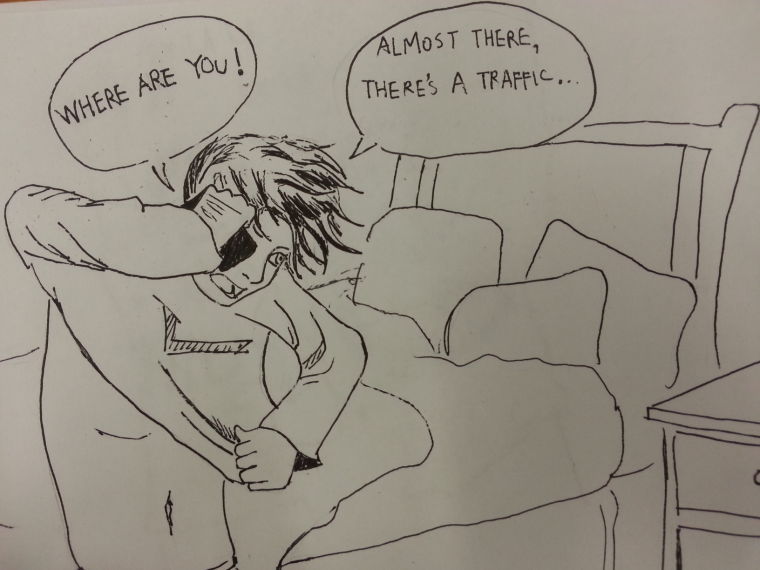Little white lies hurt, too
March 4, 2013
Picture this: You’ve been sitting in your car outside of your friend’s home for what feels like forever. Your friend most likely told you that they’d be ready when you got there, or better yet, they’d be out in “just a minute” (oh, of course). Yet, these assurances have been blatantly disregarded and unfulfilled, as you end up waiting even longer.
Well, my friend, that is definitely what is commonly referred to as “a little white lie.”
“I’m right around the corner,” “I didn’t get your call,” or my personal favorite, “I don’t mind.”
Sound familiar?
We’ve all most likely told them or have fallen victim to them at some point.
I can recall a time I was talking with a friend of mine and she brought up a play that she was attending and asked me if I would come along. You could hear every bit of excitement in her voice. This was certainly not my idea of fun on a Friday night. Instead of telling her the truth, I opted for a different route: I told her I was extremely tired and was probably just going to stay home and relax.
You can bet the exact opposite happened. I just really did not want to go.
This occurrence of mine, as well as others, led me to research exactly how many other people go throughout their day telling such fibs. What I found was quite interesting. According to U.S. News, a study conducted found that “people tell two to three lies every 10 minutes, and even conservative estimates indicate that we lie at least once a day.”
That’s certainly a lot of lies being told. But for what reason, exactly? Wouldn’t it be much easier to just tell the truth rather than construct these fabrications to be used for the mere convenience of getting out of certain situations (that may not even be that bad to begin with)?
According to ChangingMinds.org, a website dedicated to information on how to change the way people see each other, people tell lies for various reasons. It may be in effort to “minimize harm, embarrassment or distress” or for our own benefit or gain.
To me, all of this just demonstrates that we as a society are afraid of being blunt and truthful and would much rather use fib-telling as a scapegoat to shield us from having to tell the truth. A lie is seemingly easier to tell and enables one to become detached from the reality that they are so desperately trying to escape. Isn’t the truth supposed to set you free?
Now, I am not writing any of this to persecute or shame anyone into feeling guilty about their tendency to tell white lies because I am also no stranger to this. Telling lies is something that occurs quite frequently in everyday life and situations, having made it somewhat socially acceptable. I do, however, invite you to go just one day where you attempt to minimize (or eliminate) any fib-telling from your conversations. See if you can let truth outweigh the falsehoods you may have become accustomed to delivering.
Honesty is the best policy, after all.













